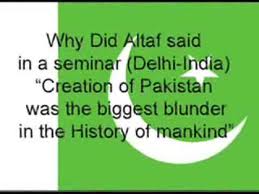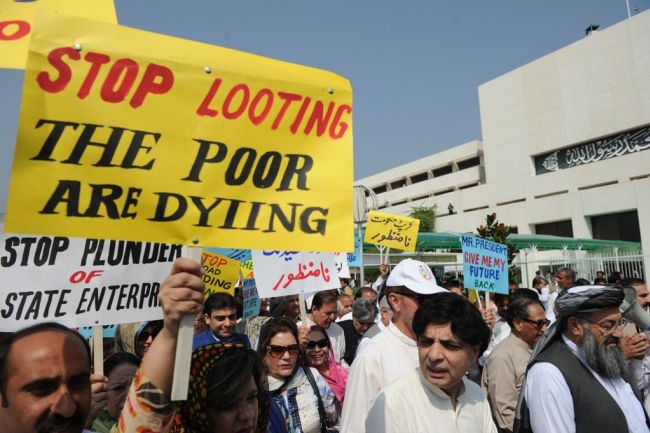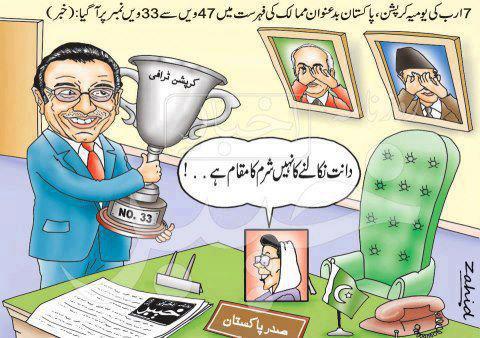Gen Pervez Musharraf inherited a country that was broke, and that was regarded as an international pariah due to its nuclear ambitions. Initially he did not do a bad job of running it, with a cabinet of 12 citizens, and his popularity ranking by and large was favourable. We chugged along, with no help from the outer world, with no internal upheavals. Then came 2001 and 9/11, and Musharraf was established as one of the world`s most sought after leaders. Pakistan`s geographical location and his wink-of-an-eye decision had seen to it.
Then he got carried away, it all went to his head, by April 2002 he had `lost it`. His referendum was the beginning of his end. He then further `lost it` by picking out the worst possible political actors on the national stage with whom to form a political party and run away with the elections he was bound, by the Supreme Court, to hold at the end of that year. His choice of manpower on the political side could not have been worse (well, yes, judging by what we have today, perhaps it amazingly could have been).
To form his new assemblies some bright spark advised him to decree that all those standing for election must be graduates. Utterly ridiculous, and against all democratic norms, because not only did it shut out the larger majority of the nation from offering themselves to the electorate but it opened wide the door to corruption (which until then had been held within reasonable bounds).
Musharraf knew his country-kin, he knew their propensity for corruption and he must have known that a large number of those he sought to install in his parliament would conjure up bogus degrees — which of course they did with his encouragement. He was not ignorant as to how entrenched was corruption. At the end of 1999, in an interview with the BBC, when asked how corruption in the armed forces compared with that of the political classes — Mickey (Kamran) Shafi will like this one — he responded, curtly and aptly “We are all of the same stock.”
So, no one knew, or even cared, at that time how many bogus degrees had been produced before the Election Commission, and exactly how many cheats and crooks entered parliament — though we did have a fair idea from the calibre of those that sat there.
The graduate requirement was operable for the 2008 elections and so more bogus degrees were cooked up by the new lot of aspiring legislators. We now know much more. On orders passed by the Supreme Court, the Higher Education Commission (HEC) has reportedly sent off the degree certificates produced by 934 parliamentarians for verification (the total number of these leech-like beings is 1,170). Apparently 161 certificates were illegible — what does that tell us as to their validity?
It seems that a dozen or so cheats and crooks have already been disqualified by our courts and over 50 cases are pending. The most famous legislator allegedly with a bogus degree is the man in charge of the law ministry who claims to hold a doctorate from a university that sounds like an Italian ice cream factory.
The media, particularly the press, has been active in its coverage of this national disgrace — and must be given due credit. `Civil society` which reared its head in 2007 has not been too vocal, there have been no marches or demos against the cheats, charlatans, con-persons and four-flushers who have passed themselves off as legislators.
The two intrepid tilters at windmills, friends Naeem Sadiq and Isa Daudpota, appealed in April to the Chief Justice of Pakistan pleading that he order that the parliamentarians` degrees be verified and those found with fake degrees be disqualified immediately and barred from ever again standing for election.
Last month they sent him a second appeal requesting that he take legal action against the CEC or Chief Election Commissioner (current and previous) for failing to verify the declared degrees and allowing cheats and crooks to sit in our parliament. The fault that they are where they are lies entirely with the CECs.
The CEC and, by extension, the HEC must shoulder the blame for this unacceptable state of affairs and see that the matter is sorted out as per the orders of the Supreme Court and as per accepted norms of honesty. All who have sat in parliament between 2002 and 2007 and all who now sit there must share the guilt for having connived and acquiesced with gross moral corruption. The universities of the country must cooperate, and not in their turn cheat and falsify, in weeding out the bogus degrees and by advising the HEC which in turn should make public the list of all the criminals who have conned us.
To top it all, when on the subject of connivance and acquiescence, we had the chief minister of Balochistan, a `nawab` no less, Aslam Raisani, who recently when uttering on the subject of the holders of fake degrees in his assembly (13 members of whom allegedly stand accused) is quoted (this newspaper June 30) as having stated that “a degree is a degree whether fake or genuine”. If such be the belief and thinking of our legislators, then not even God Almighty can save this country from its moral morass.









